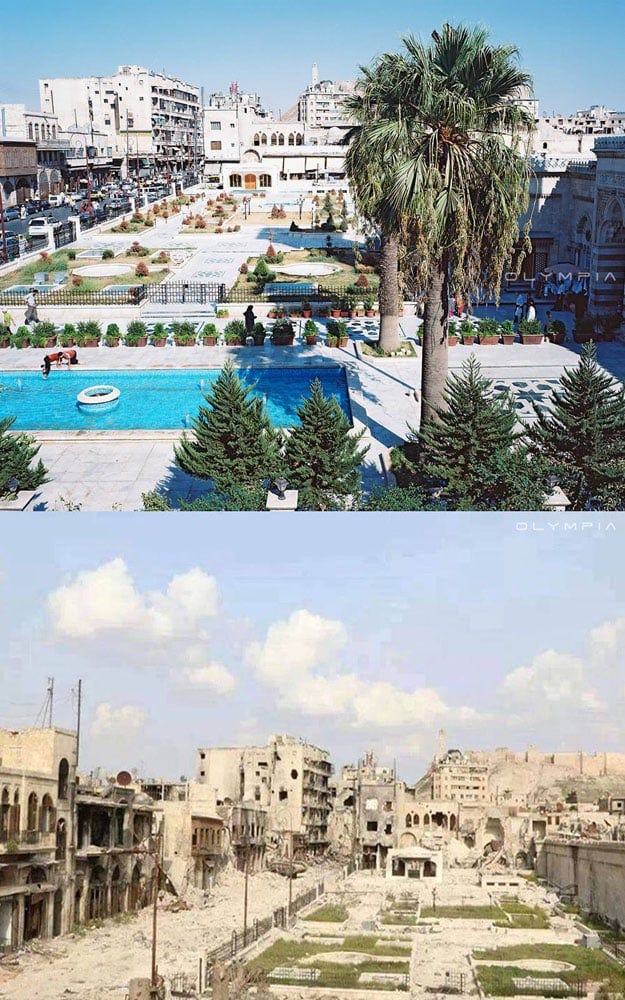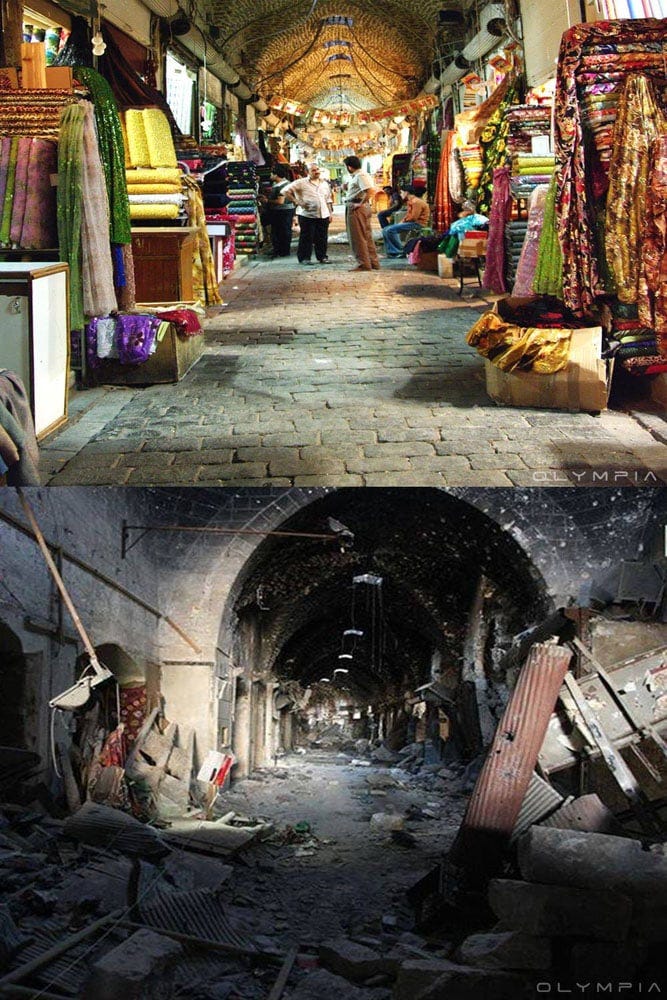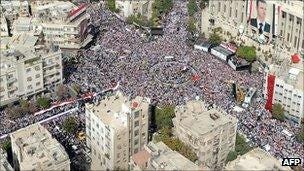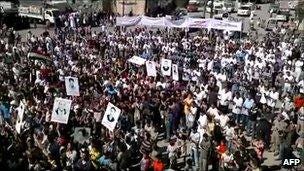The Dismantling of Syria’s Brand of Socialism and the Agenda of Privatisation

There are plenty of geopolitical reasons for regime change policy against President Bashar al-Assad of Syria, pursued by Turkey, Israel and the United States.
Less highlighted is another endgame: the dismantling of a state run economy with ideological socialist roots.
Countries that lean towards socialism are anathema to private corporations because they deprive capitalists of cheap resources, labour and consumer markets. In the pursuit of private capital, the West, led by the United States (US) has for decades supported right wing anti-socialist countries and organisations.
This article situates Syria as a state within the global context, where capital continually strives to expand in a way that profits the few over the many.
Arab States: A Tale of Two Contrasting Development Trajectories
- Authoritarian monarchies such as Saudi Arabia align with Western interests which favour private enterprise and the transfer of resources from the government to the private sector. Members of ruling families constitute a private capitalist class, in control of the state, oil resources and corporations. The working class consists of low-paid immigrant workers who do not have citizenship and therefore do not benefit from welfare programs. Petrodollars from these countries have kept the United States’ economy in pole position globally.
-
After decolonisation, republics such as Syria, Iraq and Libya adopted a financial model which rejected privatisation of trade, banks and financial markets. Inspired by pan-Arabism and Marxism, these countries were built on trade unionism, centrally planned economies, state banks and state ownership of oil resources with profits flowing to a welfare state. From the 1970s to 1990s, this economic model made these three oil-rich countries relatively prosperous and independent.
Syria Before and After War and Sanctions
.


.
In 1963 the Syrian Socialist Arab Resurrection (Ba’ath) Party came to power on a platform of socialism, anti imperialism, wealth redistribution, secularism, and modernization. Also active in Iraq, the Ba’ath Party advocated Pan-Arabism, the movement for Arab unification as a way of reversing national divisions imposed by the European powers after World War 1. Under the memorable slogan ‘Unity, Freedom, Socialism,’ the Ba’ath Party in Syria was backed by a mass movement of industrial workers and farm labourers, who had occupied factories and battled landowners in the 1960s. Hafiz al-Assad became President in 1970; Bashar al-Assad succeeded his father in 2000.
A key policy of the Ba’ath Party is the nationalization of resources and assets, with profits ploughed back into the state for welfare and development.
There followed years of relative prosperity. By the mid-2000s Syria’s economy remained under state control with 2/3rds of its capital formation in the public sector In 2000, Libya’s poverty incidence was 10.36% which was low by international standards (Lawson, 2019.) By comparison the US’ poverty rate was at 11% this year.
In 2005 the first of a series of harsh sanctions was imposed by the US to deprive the Syrian population of resources. The collective punishment was blamed on al-Assad’s government support of Hamas and Hezbollah. By 2010, sanctions plus a three year drought led to poverty levels rising to 30% of the population.
In 2011, anger at state repression, government corruption and rising poverty levels boiled over in street protests. Counter demonstrations in favour of al-Assad were equally large. Syrian police and security forces carried out a brutal crackdown on dissidents; resulting in an estimated 3000 deaths. From 2012 to 2016 government forces battled with an armed opposition and an influx of ISIS and Al Qaeda affiliates.
.

Pro al-Assad rally in Damascus, October 2011

Anti al-Assad rally in Deraa, October 2011. [Picture source: BBC News]
.
The US funded and trained the armed opposition as part of its regime change policy to overthrow al-Assad. Other regional powers, allies of the US, financed extremist militias. US National Security Advisor Jake Sullivan famously wrote to Hillary Clinton in 2011, ‘AQ [al-Qaeda] is on our side in Syria’.
In 2012, the Arab Center for Research and Policy Studies reported that the sanctions amounted to an economic blockade that was ‘…aimed at stifling the Syrian economy within a period estimated in months, not years, leading to the collapse of the balance of its former macroeconomic framework.’ (Robicheau, 2014.)
By 2018 the rate of poverty had soared to 80% of Syrians living under the poverty line.
Trump doubled down on the sanctions. In 2019, his administration and the United States Congress passed the extraordinarily brutal Caesar Syria Civilian Protection Act, a package of draconian economic and financial restrictions with a cruel twist: any country that traded with Syria would also be sanctioned.
In 2023, Human Rights Watch reported that a staggering 90% of Syrians had fallen under the poverty line. ‘At least 12 million—more than half the population—could not access or afford enough quality food, and at least 15 million required some form of humanitarian aid to survive. More than 600,000 children were chronically malnourished. ‘
What Happened to Post-war Iraq and Libya Could Happen to Syria
After it invaded Iraq in 2003, the US banned Iraq’s Ba’ath Party, which precipitated social unrest and a civil war. From 2003 to 2011, an estimated 200,000 civilians died as a result of the US invasion, occupation and resultant insurgencies.
In the post war ‘reconstruction period’ the US attempted to open up Iraqi oil industries to private international corporations. This measure was blocked by oil workers trade unions, asserting ‘the oil wealth of Iraq belonged to its people.’ However Iraqi government neglect and financial corruption mean that profits are yet to trickle down to ordinary citizens.
In 2012 socialist Libya was bombed and defeated by NATO. The country managed to retain its public sector but much of the development initiated by Col Gaddafi, Libya’s former President, was eradicated. The North African country now suffers from deteriorating economic conditions, post-war internal conflicts and the scourge of Islamist terrorist groups.
Syria’s Oil: Smuggling and Theft
The majority of Syria’s oil and gas fields has fallen into the hands of non-government entities in the past few years.
A UK-based public energy company, Gulfsands, reported in 2022 that:
‘Western sanctions placed on the oil sector have caused foreign oil companies to leave the country…The Syrian Democratic Forces (SDF), a US-backed coalition, currently controls one-quarter of Syria’s territory, including the area east of the Euphrates. This means that the SDF now dominates 90 percent of the oil and over 50 percent of the gas fields, as well as the infrastructure owned by foreign companies, according to legitimate contracts signed with the Damascus government, including Gulfsands Petroleum, Total, and Shell. Oil wells and facilities were cordoned off and “protected” by the US-led coalition forces and SDF…
‘…Damascus announced that the oil sector’s losses since the beginning of the crisis amounted to USD 91.5 billion. Oil Minister Bassam Tohme revealed that the daily oil production is 89,000 barrels, mainly in Kurdish-controlled areas. Tohme describes this oil as being “stolen” from the Syrian people.
‘Officials talk about networks operating in the shadows to smuggle oil and its derivatives between the east of the Euphrates, controlled by the SDF whose linchpin is the Kurdish People’s Protection Units (YPG), and the Euphrates Shield areas or other enclaves controlled by the Syrian opposition factions and the Turkish army.’
The vultures are circling, waiting to seize Syria’s remaining natural assets. Behind the front line of terrorists, smugglers and war profiteers lurk multinational oil and gas corporations, ready to pounce once stability is restored.
*
Click the share button below to email/forward this article to your friends and colleagues. Follow us on Instagram and Twitter and subscribe to our Telegram Channel. Feel free to repost and share widely Global Research articles.
Global Research’s Holiday Fundraiser
This article was originally published on Geopolitics: It’s not Rocket Science.
Sources
BBC News, ‘Syria uprising: UN says protest death toll hits 3,000,’ 14 October, 2011
Lawson, Fred H, ‘Syria’ in Angrist, Michele Penner, ‘Politics and Society in the Contemporary Middle East,’ Boulder, Co: Lynne Rienner Publishers, 2019
A Marxist Guide to Understanding the Gulf States’ Political Economy
Robicheau, D, ‘Syria, the MENA Region, and International Finance Capitalism,’ International Critical Thought, Vol 4 no 2, June 2014.
United Nations Development Program, ‘Poverty in Syria: 1996-2204,’ June 2005
Featured image is from the author

